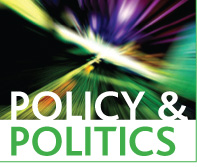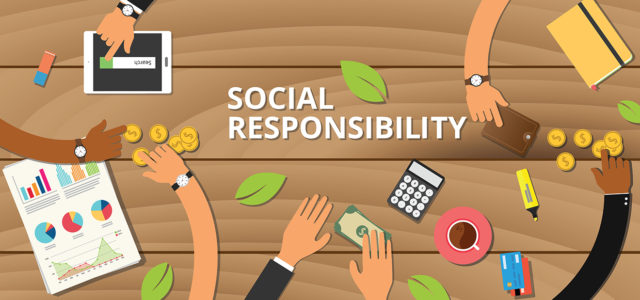Shlomo Mizrahi, Nissim Cohen, and Eran Vigoda-Gadot
 This section of Discover Society is provided in collaboration with the journal, Policy and Politics. It is curated by Sarah Brown.
This section of Discover Society is provided in collaboration with the journal, Policy and Politics. It is curated by Sarah Brown.
Some six years ago we published our book on Managing Democracies in Turbulent Times: Trust, performance, and Governance in Modern States. We could not imagine how relevant this book and its content would become only a few years later. As we noted in the introduction to that book, the 21st century saw our world become a turbulent living sphere. Democracies have been confronted with nature-made and human-made crisis of a kind unknown in the past. Vicious terror attacks and additional threats to world security, alarming market failures, disengagement and reengagement of national entities, as well as pandemics and natural disasters of various types have become a great challenge to governments. The challenges to citizens and to civic society has also increased accordingly.
We also argued that there are a range of signs of a lack of cohesiveness in our social fabrics to effectively resist the potentially harmful threats to our lives in the free world. One of the major indications of this lack of cohesiveness, so necessary in times of threat, is the lack of trust in political systems as well as greater scepticism about the effectiveness of democratic mechanisms in many countries. The social responsibility of governments is especially important in such times.
In our view, the goal of understanding trust in democracies more fully is crucial for effective management of the democratic state. Any democratic state: from Europe to North America, from Asia to rising Africa, and beyond. This is one of the fastest growing challenges for academics, politicians, policy makers, bureaucrats, and the future generations of active citizens in our nations.
In times of global crisis, more than any other time, citizens look to governments with infinite expectations and hope that solutions will be offered to their most vital and urgent needs. At the time of writing, the Coronavirus pandemic means healthcare systems are at the centre of public attention, and increasing efforts are being made to ensure their optimal functioning and reputation, in mitigating the significant threat to public health.
In such times, the social responsibility of government, its sensitivity to the people, and customer satisfaction and trust in our healthcare services are major indicators of national resilience. How much do we trust the government? To what degree do we feel that it has a responsibility to ensure that its citizens are healthy in ordinary days and in times of emergency? Do these issues have any relationship with how satisfied we are with the services the government provides? If so, in what way and with what impact?
These are important questions, particularly when we face major risks such as pandemics and natural disasters. We know that when we trust people or institutions, we are more willing to cooperate with them, take risks, commit to them and share information with them. In contrast, when we don’t trust people or institutions, we may fear them, be defensive in our interactions with them, not cooperate with them and distort the information we give them.
The literature on public administration has devoted a great deal of attention to the issue of trust, meaning the willingness to be vulnerable to the actions of the other, which might be a group or institution that has the ability to harm those who trust them or betray their trust. These studies consider trust to be a crucial element in the relationships between public officials and citizens.
The findings in our article, ‘Government’s Social Responsibility, Citizen Satisfaction and Trust’, go a step further by demonstrating the important role of public perceptions about the government’s social responsibility and the performance of public healthcare services in building trust among citizens.
We recommend that researchers focus on the mutual dependence of trust and other variables. By other variables, we mean for example, the public’s perceptions about the performance of public systems, managerial quality in public organisations, distributive and procedural justice, and beliefs about the social responsibility of government to provide public services, as well as the ways in which they co-evolve and change simultaneously. Furthermore, if we look at the co-evolution of citizen’s perceptions about some of these issues , we need to explain how politicians, public officials and interest groups influence these perceptions and the channels through which they do so.
From the point of view of theory, we suggest that public trust in government may be an elusive concept that has various sources. While most studies focus on the ways in which citizen’s evaluations of various aspects of reality may be related to trust in government, our article highlights citizen’s attitudes about the government’s social responsibility as the main explanation of this trust. Existing explanations tend to focus on citizen’s evaluations of the government’s performance as a main antecedent of their trust in it. By contrast, we analyse the interplay between citizen’s attitudes about the government’s social responsibility, citizen’s satisfaction with the performance of government, and their trust in healthcare. We also test whether the direction of the relationships might be reversed, meaning that trust is the independent, rather than the dependent, variable.
Our findings confirm that in analysing public trust, we should also consider the involvement of intrinsic parameters such as citizen’s attitudes about the government’s social responsibility and the scope of the welfare state. Furthermore, we show that citizen’s satisfaction with services has more weight in explaining trust than their perceptions about the government’s social responsibility and the welfare state. This rationale, which connects citizen’s expectations about what the government should do and citizen’s satisfaction with and trust in public organisations, adds another perspective to the theory of trust.
This conclusion may also have implications for the study of democracy. Even in a society that strongly favours a generous welfare state and government intervention, people form their perceptions about public organisations primarily based on their satisfaction with the services that these organisations provide. Nevertheless, we posit that an output variable such as satisfaction influences trust because it represents the responsiveness of the system to citizen’s expectations. Thus, it is not only the outputs that matter but also the responsiveness of the system.
The existence of complex relationships between perceptions about the government’s social responsibility, the public’s trust in the government and satisfaction with the services it provides also affects public healthcare systems and health policies. Trust in public organisations promotes cooperation between citizens and public officials, reduces the costs of transactions, and contributes to economic growth and social welfare. Scholars have devoted substantial effort to identifying the antecedents of trust in public organisations. However, if the relationships between these supposed antecedents and trust work in both directions, it means that we know very little about the ways in which citizens determine their trust in public organisations and the government.
Our article may therefore be inspiring by pointing to a handful of potential patterns in national and global reforms. The most immediate one is the call to build trust in any public service, with a strong emphasis on healthcare systems, as they are the frontline of any future emergency, be it a pandemic, earthquake, tsunami or manmade disasters such as terrorism or global warming.
The 20th century was the time of glory for the idea of democracy across continents and nations. Yet the mechanisms by which democracies function better, produce more for less, and manage our daily lives with our aspirations of prosperity, welfare, and fairness to citizens, remains an unresolved concern to many policy makers, politicians and citizens alike. Despite disagreements among themselves, they all agree on the importance of healthcare services to our societies and to the political stability of nations. Whereas the 20th century faced turbulent times of its own in the form of global wars, natural and human-made disasters, the 21st century seems to face even greater challenges, risks and threats ever increasing in scale. As our article claims, the social responsibility of government may be one promising lead to meeting these challenges by nurturing citizen’s trust and satisfaction with the democratic ethos.
Shlomo Mizrahi, Nissim Cohen, and Eran Vigoda-Gadot teach and research in the School of Political Sciences at the University of Haifa, Israel.
Image: All rights reserved. © 123RF Limited 2005-2020
